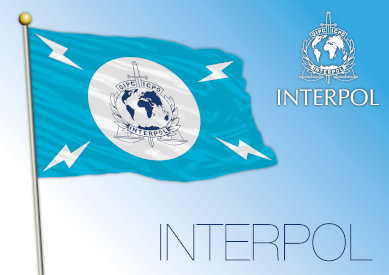The Australian Federal Police (AFP) has announced a significant milestone in its collaboration with INTERPOL, marking the 100th anniversary of the international policing organisation with a notable 50% increase in the creation of INTERPOL notices for Australian law enforcement agencies over the past year. This surge underscores the AFP’s commitment to leveraging global networks to enhance national security.
Strengthening global partnerships
AFP Commissioner Reece Kershaw, attending the 91st INTERPOL General Assembly in Vienna, emphasised the importance of international cooperation in addressing global threats such as serious transnational organised crime. Commissioner Kershaw highlighted that approximately 70% of the crime syndicates targeting Australia operate from overseas, necessitating robust international partnerships. He stated, “To help disrupt crime or bring perpetrators to justice requires meaningful and trusted international networks, and INTERPOL is one key partner that helps Australian law enforcement agencies keep our citizens safe.”
AFP’s strategy against global crime
The AFP’s strategy involves making Australia a challenging and costly target for criminals through arrests, disruptions, and other measures. This approach addresses various criminal activities, including illicit drug trafficking, cybercrime, and online child exploitation. The AFP’s efforts are facilitated by the Australian INTERPOL National Central Bureau (NCB) in Canberra, which operates 24/7, coordinating inquiries with 194 member countries.
In the past year alone, NCB Canberra has processed nearly 5000 law enforcement referrals, including over 500 threats to life or self-harm, illustrating the critical role of international cooperation in ensuring public safety.
Key achievements and ongoing initiatives
Commissioner Kershaw acknowledged several significant achievements resulting from the AFP’s collaboration with INTERPOL since Australia joined the organisation 75 years ago. One notable success is the INTERPOL International Child Exploitation Database (ICSE), which, in coordination with the AFP-led Australian Centre to Counter Child Exploitation (ACCCE), has led to the rescue of 860 victims in Australia and the identification of 35,000 victims worldwide. Additionally, almost 16,000 offenders have been arrested globally through these efforts.
The AFP has also engaged in joint initiatives targeting various forms of crime, including efforts against the mafia and ‘Ndrangheta through the INTERPOL Cooperation Against ‘Ndrangheta (I-CAN) project, counter-terrorism operations, cybercrime, and the recovery of culturally significant artifacts.
The role of INTERPOL Notices
INTERPOL notices and diffusions are essential tools in the global fight against crime, facilitating cooperation and information exchange among member countries. These notices include:
- Red Notices: Requests to locate and provisionally arrest individuals pending extradition.
- Blue Notices: Requests for information on a person’s identity or activities.
- Green Notices: Warnings about criminal activities or threats.
- Black Notices: Requests for information on unidentified bodies.
- Yellow Notices: Requests for help in locating missing persons.
Each year, 30,000 to 40,000 notices and diffusions are circulated globally, with Australia currently having over 1300 notices supporting its law enforcement agencies.
Historical context and legacy
Australia’s engagement with INTERPOL dates back to 1948 when the then Victorian Police Commissioner Alexander Duncan represented Australia at the General Assembly of the International Criminal Police Commission. This engagement has evolved over the decades, with the NCB moving from Melbourne to Canberra in 1975 under Prime Minister Gough Whitlam’s directive, placing it under the management of the Commonwealth Police, now the AFP.
INTERPOL’s growth from a small organisation to a global network of 195 member countries highlights the expanding scope of international law enforcement cooperation. The AFP’s international presence and its work with INTERPOL complement and enhance its operational capabilities.



